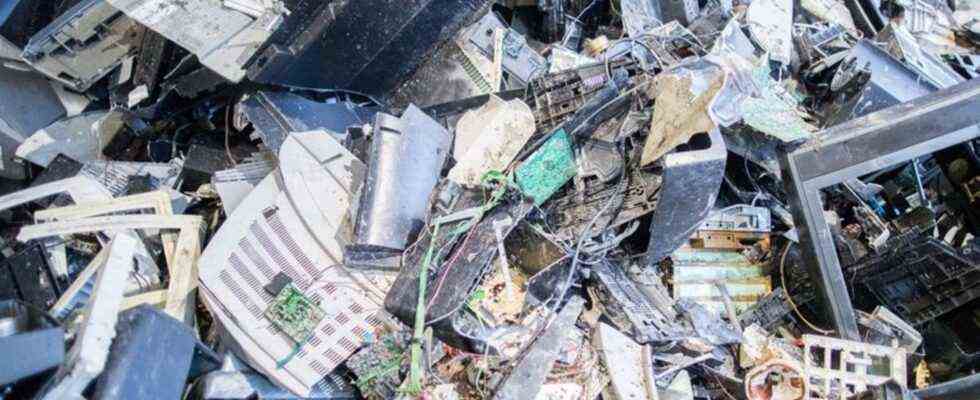environment
E-waste peak: consequences required
Despite all efforts to reduce e-waste, the mountain continues to grow. Photo: Marcel Kusch / dpa
© dpa-infocom GmbH
Mankind leaves more and more broken and discarded electrical devices – despite all sustainability efforts. Environmentalists are now appealing to consumers.
In view of the ever increasing mass of broken and unused electrical appliances, environmentalists are appealing to consumers.
You should have decommissioned electrical devices repaired or recycled, according to today’s International E-Waste Day.
According to estimates, the mass of e-waste generated annually will again reach a high in 2021 at 57.4 million tonnes. According to environmental experts from the Brussels WEEE Forum, the mass of discarded refrigerators, monitors and cell phones even exceeds the weight of the Great Wall of China. WEEE stands for “Waste of Electrical and Electronic Equipment”.
Despite all efforts to reduce electronic waste, the mountain continues to grow: According to the “Global E-Waste Monitor 2020” co-authored by the University of the United Nations, 53.6 million tons of electronic waste were collected in 2019, a growth of 21 percent within means of five years. And a trend reversal is not in sight: if the trend continues, 74 million tons are expected in 2030.
The problem is not only the mass, but also how it is dealt with. According to calculations by the UN experts, only 17.4 percent of the e-waste produced was collected and recycled in 2019. Many valuable raw materials – including gold and silver – were instead burned or ended up in rubbish dumps. Hazardous substances such as mercury would pose a threat to people and the environment.
There is also another environmental aspect: “As long as citizens do not return, sell or donate their used, broken equipment, we must continue to mine completely new materials that cause major environmental damage,” said Pascal Leroy, Director of the WEEE Forum and the organizer of the “International E-Waste Days”, with.
The EU countered this problem early on with measures and guidelines that are intended to ensure the proper disposal of old electrical appliances and oblige the manufacturers of the appliances to take responsibility for the collection, sorting and recycling of their products. Nevertheless, according to a study by the United Nations Training and Research Institute, some of the EU member states are far behind their own targets when it comes to reducing electronic waste.
For this reason, too, the “International E-Waste Day” this year will focus on the end consumer and “focus on the responsibility that we all as citizens have to create a circular economy,” said Leroy.

